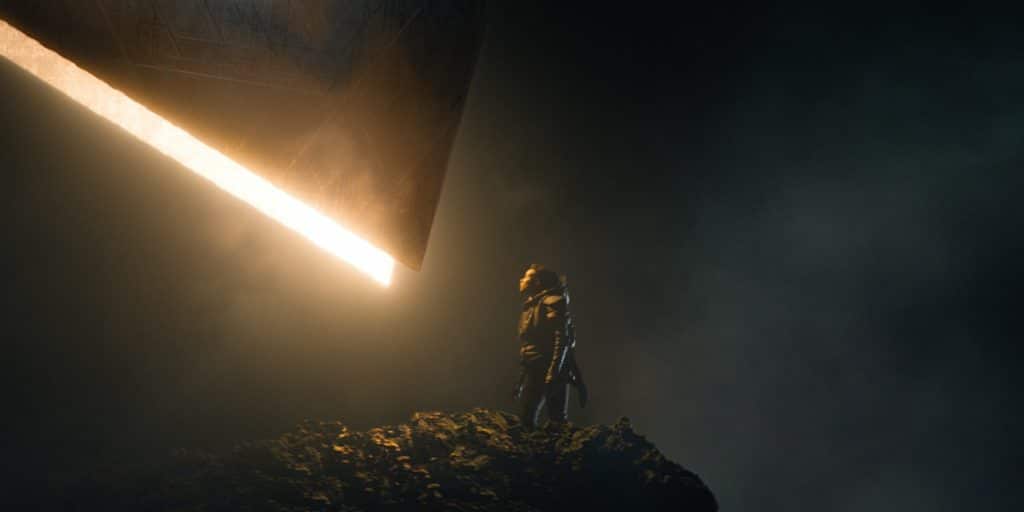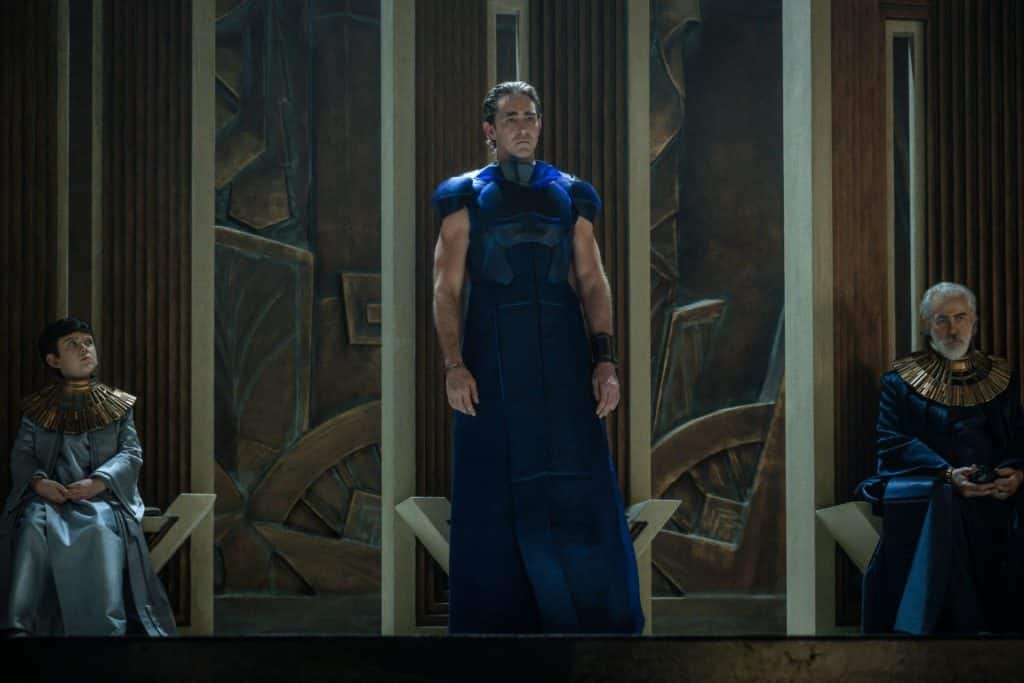Read also:
How to Watch FX Live Without CableHow To Watch AMC Without CableHow to Watch ABC Without CableHow to Watch Paramount Network Without CableApple TV+’s latest sci-fi series is a glossy, gorgeous-looking adaptation of the Isaac Asimov novels, which nonetheless struggles to find humanity among its big ideas.
Foundation is big. It is glossy. It is grand in scale and epic in tone. Worlds upon worlds, filled with trillions of people, hang in the balance. Well-dressed futuristic figures in smartly-appointed rooms give high-minded speeches at one another, debating the fate of civilization as it unspools over millennia.
Grave threats emerge. Autocratic dictators suppress dissent. Noble scientists plot better courses. Young heroes emerge from humble circumstances to meet their mentors. Smirking villains send them away to meet their fates. Innocents are executed. Planets are maimed. New communities are envisioned. And betrayals and reveals abound.
This is all to say that the opening stanza of Foundation is perfectly fine. The series, from Dark Knight trilogy writer David S. Goyer and Terminator: Dark Fate scribe Josh Friedman, hits a number of familiar beats but still manages to get off to a solid enough start. In updating Isaac Asimov’s classic series of novels for the modern age, the pair do quality work. There’s just little present in the first two episodes to truly grab audiences or otherwise rise from amiable competence into something more transcendent.

The show looks the part, though, with looming towers that jut into space, frozen tundras at the end of the universe, and the requisite amount of explosions necessary for a big-budget science fiction project. Events like faster-than-light travel or extended descents to the planet below have the visual acumen you’d expect from Apple TV+’s fancy new foray into sci-fi. And the grand palaces, bustling space stations, interstellar transports, and backwater planets all have that mix between high fantasy ornateness and earth-bound grittiness that defines quasi-realistic genre stories in the modern age.
Likewise, the talent is there. Jared Harris leads the way as Dr. Hari Seldon, a venerated but controversial mathematician whose equations predict the end of the world. Lee Pace antagonizes him as Brother Day, a galactic emperor, cloned from a line of over four centuries, who views Seldon as a disruptor and charlatan. And newcomer Lou Llobell holds the center of the story as Gaal Dornick, a mathematical wunderkind who earned her way into the crucible of history.
Each of these performers understands the assignment and rises to it admirably. Harris’s Seldon is commanding but wry. Pace’s Day is aloof but self-satisfied. And Llobell’s Gaal is awestruck but confident. The supporting characters play their parts with equal aplomb, and no performer or any other element of the show stands out as bad.
But little of it stands out as particularly stellar or promising either. The show invokes a Game of Thrones-esque sweep, but much of the tone and feel of its early hours comes off more cold and sterile. The relationships among the characters are clear enough, but hard to feel moved by. The aesthetic of each setting, from the byzantine imperium stronghold to the hard-worn outer reach, is a tug of war between elegance and emptiness. And the vibe is cerebral yet overly-manicured, without the humanity and life that draws us to these speculative worlds far removed from our own.
The show invokes a Game of Thrones-esque sweep, but much of the tone and feel of its early hours comes off more cold and sterile.
The show’s greatest potential, in its early going at least, lies in its basic premise and themes. The table stakes of the show, painstakingly set, are salient. A flourishing if oppressive empire touts its way of governing its society as necessary to maintain peace and prosperity. A man of science and truth looks at the numbers and facts and declares their civilization’s days are numbered, but with work and sacrifice, they can soften the fall. Word of unpleasant realities is suppressed. Good people are slandered and deemed guilty by association. The chance for hubris leading to a longer age of darkness looms large.
It’s not hard to read Goyer and Friedman’s opening salvo as a means to anchor Foundation around modern responses to the impending (and current) effects of climate change. The metaphors are not subtle, but still potent. And abstracted to the scale of prestige science fiction, they carry the weight of charged oratories backed by dramatic scores in lavish settings that well-intentioned PowerPoints from actual scientists have trouble matching.
More broadly, Foundation speaks to the balancing of scientific verity and political convenience that cuts across ages and problems. The show wraps these notions in root-worthy tales of a young woman from an anti-intellectual hinterland rising to work on a project that may lead humanity out of an inevitable catastrophe.
The prospect of a seemingly unshakable doomsaying prediction hangs over her and everyone. But Seldon’s bleak prophesying is general enough that there’s still room for individual variation and small-scale unpredictability, to keep the story interesting. Questions of whether he could be wrong, or have blind spots, drive the action and tension. On paper, it should work.

Likewise, tropes about the need for new ideas and variation over an enshrined status quo are familiar but find purchase in the strangeness of cloned emperors training one another across centuries. In that, Foundation bakes in questions of good governance, the price of stability, and how age and generational shifts affect major players at different stages of development. The use of force, the need to have answers now, whether or not they’re right, in order to soothe the populace, permeate the show’s early installments. The bones of thoughtful sci-fi with grander aspirations are there, and they’re strong.
The problem is that in its extended introduction, Foundation lacks that spark, the pull of humanity, to liven an otherwise dour and serious story. Harris occasionally manages to inject a twinkle of the eye into Dr. Seldon. And Gaal’s relationships with those around her form the show’s backbone in the early going. But little of it feels real or affecting. Instead, the show mainly feels like the polished prestige drama that it is, awash in writerly speeches about big ideas and declared emotions, but with a dearth of genuine, palpable feeling.
That’s not to say it’s bad. As it embarks on a proposed eighty-hour story, Foundation does a capable job setting the stage and launching its narrative. There is, appropriately, enough to build on here. The show laudably diversifies the major players from its source material. The characters have clear goals and thorny epochal problems to untangle. And the show has the runway and budget to realize them with a cinematic berth. But its early episodes never quite reach that next level, or find the extra something special that made Asimov’s work connect with so many for so long.
Foundation begins its journey across the stars September 24th on Apple TV+, with new episodes premiering weekly.